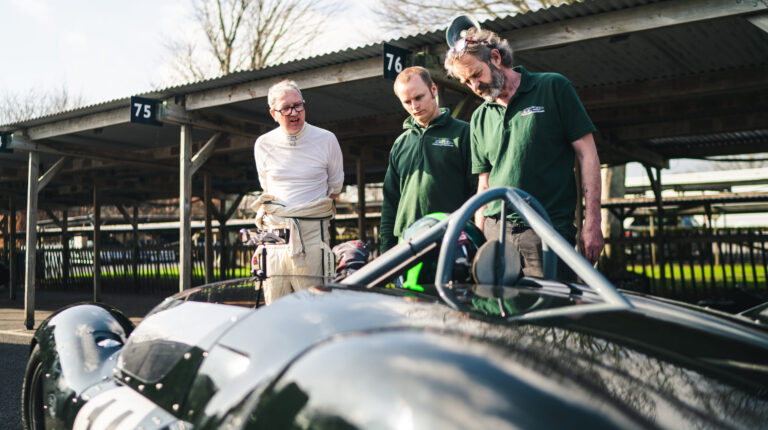The question of eligibility and technical compliance in historic racing is a sensitive one. Establishing whether modifications to a car are period correct, for example, can be a tricky process as documentation is often far from complete. However, it would be fair to say that some cars on grids are sprightlier than they were in period. This understandably creates something of a minefield for series organizers, who are keen to maximize grid sizes but must still ensure fair competition.
With this balancing act in mind, three of the main series organizers in the UK and Europe – Goodwood, Masters Historic Racing and Motor Racing Legends – have set in motion a process to establish definitive technical regulations for eligibility. In a statement to competitors, Motor Racing Legends (MRL) said, “Our driving force is to help reduce the cost of going historic racing and create an economically sustainable and fair competition environment.” 
The intention is to formulate a set of regulations for 2026 and beyond, with the series taking a collaborative approach that brings together all relevant stakeholders, including competitors, the FIA and car preparers, via technical working groups to be convened throughout the season. MRL’s statement added, “These will foster open discussion that will shape regulations in a way that benefits the historic racing community. Our goal is to work closely with you to inspect cars, validate compliance and discuss any potential non-conformities, but always with a constructive and open dialogue. Our approach is not one of restriction but of collaboration.”
In the near term, there will be a hard line taken on flagrant rules violation, with MRL stating, “We believe that historic racing should be a fair and fun environment. If we find a competitor, preparer or car to be in deliberate serious breach of the regulations, they will be banned and will need to provide evidence that irregularities have been rectified before they will be able to race with Motor Racing Legends again. This will be consistent across Goodwood and Masters Historic Racing.”
The series will also work together to address the topic of managing car performance. With classes by necessity encompassing a broad range of vehicles spanning considerable time periods, and inevitable development taking place on cars within those classes, spiraling costs have become a concern. “Should we implement rev limiters? Introduce intake restrictors? Regulate brake materials? These are critical questions, and we must answer them together by the end of the season. Our aim is to collaborate with you in shaping the future of historic racing in a way that protects the authenticity of car behavior and ensures mechanical longevity,” concluded MRL.



